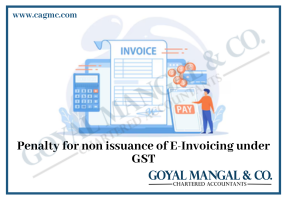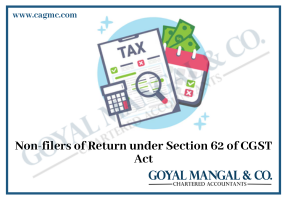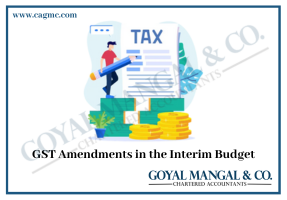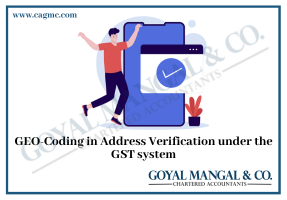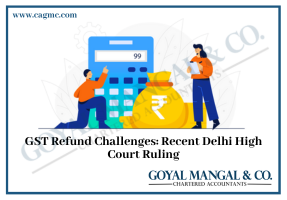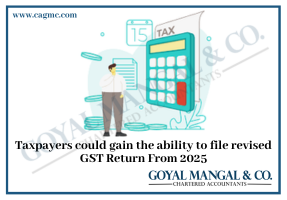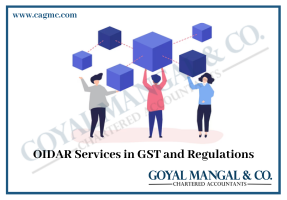
In the realm of taxation, the Goods and Services Tax (GST) has revolutionized the way goods and services are taxed. Designed to create a unified tax structure, GST has brought about significant changes in various sectors, including small traders and agriculturists. This blog post aims to shed light on the GST exemption for agriculture & small traders, acknowledging the unique challenges they face in the GST regime.
Meaning of GST exemption
GST exemption describes specific products, services, or taxpayer groups that are excluded from India’s Goods and Services Tax (GST). It denotes the absence of any GST assessments or collections on those taxpayers, services, or items. Several situations may qualify for GST exemption, including:
- Products Exempt from GST: Products that are exempt from GST are those for which no GST tax is due. Examples include basics like unprocessed cereals, fresh fruits and vegetables, milk, and basic medical supplies.
- Services exempt from GST: Services that are exempt from GST taxation are those that are not subject to GST taxation. Examples include government services, healthcare services, and educational services offered by educational institutions.
- Threshold Exemption: Small companies or individuals are excluded from GST registration and the requirement to collect GST if their annual turnover is below a certain threshold. This exemption is dependent on turnover caps, such as the present threshold for normal category firms of Rs. 40 lakhs (Rs. 20 lakhs for special category states).
- Composition scheme: small businesses with a turnover below a certain threshold can opt for the Composition Scheme, under which they pay a predetermined percentage of that revenue in taxes. This plan lessens the tax burden on qualifying firms and simplifies compliance procedures.
It’s vital to remember that the GST laws and regulations only apply the exemption to specified types of products, services, or taxpayers. It’s critical to comprehend the precise requirements and criteria established by the government because not all items, services, or taxpayers are free from GST. In this blog we will have a detailed review about GST exemption for agriculture & small traders.
Who are small traders?|GST exemption
Small traders are typically referred to as “Small Businesses” or “Micro, Small, and Medium Enterprises” (MSMEs) under the Goods and Services Tax (GST) system in India. Small business classification under GST is mostly based on annual turnover. The following are the turnover thresholds for small traders:
- Regular Category: Small traders are defined as companies having a yearly turnover of up to Rs. 40 lakhs (Rs. 20 lakhs for states with special categories). Both products and services are covered under this exemption.
- Composition Scheme: Small business owners may choose this option if their annual turnover is total up to 1.5 crore rupees (or 75 lakh rupees in states that fall under a particular category). This plan lessens the cost of compliance by allowing them to pay a fixed proportion of their turnover as tax.
Persons for whom GST registration is compulsory under section 24
Regardless of the frequency or annual turnover, the following individuals must take a mandatory GST registration:
- Inter-state supplier
- Taxpayer under reverse charge mechanism
- Casual taxable person
- Non-resident taxable person
- E-commerce operator
- Person who requires to deduct tax under section 51 of the CGST Act, 2017
- Input service distributor
- Any person who is engaged in supplies on behalf of another taxable person whether as an agent or otherwise.
- Every person supplying online information and database access or retrieval services (OIDAR services) from a place outside India to an unregistered person in India.
- Other persons may be notified by the government.
There are also some exceptions to the mandatory registration rules, which means that the people listed above are not always needed to enrol up under section 24 of the GST Act.
GST Exemption for small trader –
Small traders in India can get GST exemptions and concessions to reduce compliance costs. Key GST exemptions for small traders:
- Composition scheme: The GST Composition Scheme is available to small traders with a turnover below a certain threshold. This system reduces paperwork and allows qualifying enterprises to pay a predetermined percentage of turnover as tax. This scheme is available to firms with a revenue of up to Rs. 1.5 crore (Rs. 75 lakhs for special category states).
- Threshold Exemption: Small traders under a specific turnover are excluded from GST registration. Businesses with an annual revenue of Rs. 40 lakhs (Rs. 20 lakhs for special category states) are exempt from GST registration. Traders can claim input tax credit and receive benefits if they register willingly.
- Quarterly Return: Small traders in the Composition Scheme can file quarterly GST returns instead of monthly ones. Compliance and administrative burden decrease.
- Simplified tax invoice: small traders with a turnover below a certain threshold can submit a simplified tax invoice. This streamlined invoice simplifies compliance for small traders by reducing documentation.
- E-Way Bill Exemption: Small traders shipping goods within a set distance are free from generating e-way bills, which are necessary for goods beyond certain criteria. This exemption simplifies compliance for local or intra-state traders.
Define Agriculturist as per GST regime |GST exemption
According to Section 2(7) of the CGST Act 2017, an “agriculturist” is a person or a Hindu Undivided Family who engages in land cultivation: –
- By own labour, or
- By the labour of family, or
- By servants on wages payable in cash or kind or by hired labour under personal supervision or the personal supervision of any member of the family.
Is GST Applicable for Agriculture? |GST exemption
Only an agriculturist, to the extent of supply of produce out of cultivation of land is exempt from GST registration requirement.
Only small Agriculturist would therefore be excluded from GST compliance. Anyone who operates A company or LLP, or Any other type of entity will not be exempted from GST registration and from paying GST on the agriculture produce.
Will Agriculturist Pay GST?|
The Act exempts only agriculturists from GST, therefore many in formal agriculture or agricultural company must register, collect, and comply with GST and pay GST on agriculture products. GST-registered agricultural firms can take input tax credit on GST paid and pass on the final GST payment to the customer.
An agriculturist without GST registration is exempt from GST requirements. However, an agriculturist would still have to pay GST on purchases which attract GST. Water pumps, milking machines, and self-unloading trailers are subject to GST but purchases from farmer under GST law of raw vegetables will not attract GST. GST on agriculture products vary. Harvesting and threshing machinery attract a GST rate of 5%, while agricultural implements manually operated or animal driven, have a GST rate of 5%. Dairy machinery & Milking machines also have a GST rate of 12%. Hence, an agriculturist would be making GST payment while purchasing such goods or services which attract GST. Any individual who supplies goods, services, or both that are tax-free, and GST-exempt does not need GST registration.
Agriculture produces goods & services Exempted from GST |GST exemption
Exempted agriculture services under GST are:
- Fresh, unprocessed vegetables and agricultural products, including dairy products, are exempt from GST.
- GST is not applied to fertilizers and seeds. As a result, farmers would not be required to pay GST tax on their major input.
- Cultivation, supplying farm labour, harvesting, warehouse related activities, renting or leading agricultural machinery, services provided by a commission agent or the Agricultural Produce Marketing Committee or Board for buying or selling agriculture produce, etc. are exempt from GST, so generally there is no GST on agriculture produce.
Takeaway
In conclusion, the GST exemption for agriculture & small traders and play a crucial role in easing their tax burdens and promoting the growth of these sectors. By recognizing the unique challenges faced by small traders and agriculturists, GST offers tailored exemptions and concessions that enable them to focus on their business operations and contribute to the economy. For small traders, these exemptions provide relief from complex compliance procedures and help in maintaining cost-effectiveness. Agriculturists benefit from GST exemptions and concessions that support the agricultural sector’s growth.
